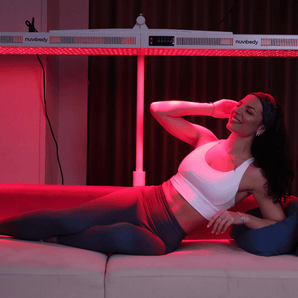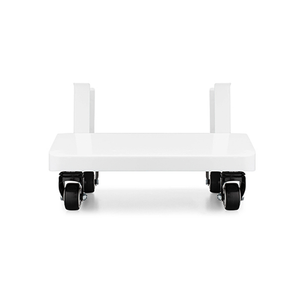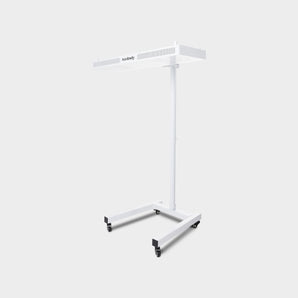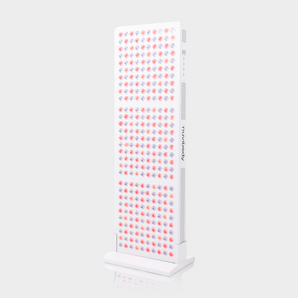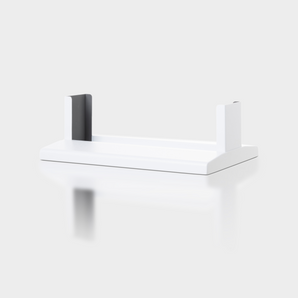Table of contents
|
Introduction
The circadian rhythm, our biological clock, is essential to our health and regulates our sleep, hormones, appetite and mood on a daily cycle. Modern lifestyles and artificial light can disrupt this rhythm, leading to sleep issues, fatigue, and health risks such as obesity and heart disease. Fortunately, lifestyle changes, such as light exposure and changes in diet and exercise, can help synchronize our biological clock, improving sleep quality and well-being. This blog offers practical tips for adjusting your circadian rhythm.
The importance of light
Sunlight and natural light
Light is the most powerful regulator of our circadian rhythm. Exposure to natural light, especially in the morning, helps our bodies signal that it’s time to wake up and activates energy production and alertness for the day. Here are some practical tips:
- Morning Walk : Start your day with a short walk outside. Not only is this good for your physical health, but the morning light also helps reset your body clock. In the winter months, you can use a light therapy device in the morning to help start the day.
- Work near windows : If you work indoors, try to find a spot close to a window so you can get natural light during the day.
Reducing blue light in the evening
Blue light, especially from electronic screens, can suppress our melatonin production and increase cortisol, making it harder to fall asleep. To reduce this effect:
- Use blue light filters : Most smartphones, tablets and computers have settings that reduce the amount of blue light. For the computer we use the F.lux app and we also put on blue light filter glasses in the evening.
- Dim the lights : Reduce the use of bright lights in your home in the evening and opt for softer, warmer lighting.
Red light therapy
In addition to natural light and blue light reduction, red light therapy is an emerging method of supporting circadian rhythms. Red light therapy, offered by devices like Nuvibody, provides wavelengths of light similar to sunset, which helps promote relaxation and prepare for sleep. Here are some of the benefits and applications:
- Promotes sleep : Red light therapy in the evening can stimulate melatonin production and improve sleep quality.
- Start the day : Red light therapy in the morning can help reduce daytime fatigue and improve energy levels.
- Easy to Use : Nuvibody devices are designed for home use, making it easy to integrate this therapy into your routine.
The combination of natural daylight, reducing blue light exposure in the evening, and using red light therapy with devices like Nuvibody, provides a holistic approach to supporting and restoring your circadian rhythm with light.
Sleep Hygiene and Routine
The Importance of a Consistent Sleep Routine
The human body thrives on regularity. A consistent sleep routine not only helps regulate your circadian rhythm, but it also promotes deeper, more restorative sleep. Here are some ways to build an effective sleep routine:
- Regular sleep schedule : Try to go to bed at the same time every night and wake up at the same time every morning, even on weekends. This consistency reinforces your body’s circadian rhythm.
- Calming Evening Routine : Develop a series of relaxing nighttime rituals that prepare your mind and body for sleep. These can include reading, meditation, light stretching, or listening to soothing music.
Optimizing the sleeping environment
A comfortable, restful sleep environment is fundamental to good sleep hygiene. Here are some suggestions:
- Cool, dark and quiet : Make sure your bedroom is cool, dark and quiet. Use blackout curtains, earplugs or a white noise machine if necessary.
- Comfortable Bed : Invest in a quality mattress and pillows that suit your sleeping position and preferences.
- Limit bed activities : Use your bed only for sleeping and intimacy. This helps your brain associate the bed with sleep.
Nutrition and exercise
Nutritional tips for a better circadian rhythm
The timing and composition of your meals can have a profound effect on your sleep-wake cycle. Here are some guidelines for how to support your circadian rhythm with nutrition:
- Synchronize meal times : Try to eat at regular times. This helps align your internal clock with your eating patterns, which can help regulate your sleep-wake cycle.
- Less caffeine and alcohol : As mentioned before, caffeine and alcohol can negatively affect your sleep quality. Try to limit your intake, especially in the second half of the day.
- Sleep-Promoting Foods : Some foods contain nutrients that can promote sleep. For example, turkey contains tryptophan, an amino acid that helps the body produce melatonin. Supplementing with magnesium can also help improve sleep quality.
- Hydration : Drinking plenty of water throughout the day can help keep your energy levels steady and prevent fatigue. However, try to limit your fluid intake right before bed to minimize nighttime awakenings for bathroom breaks.
Exercise and physical activity
Exercise has numerous health benefits, including improving sleep quality and regulating circadian rhythms. Here are some specific recommendations:
- Timing of Exercise : Exercising in the morning or early afternoon can help you sleep better at night. Sunlight from a morning walk or run can also help reinforce your circadian rhythm.
- Listen to your body : It is important to find a balance that works for you. Some people find that light exercise in the evening helps them relax, while others find that it disrupts their sleep.
Conclusion
Improving your circadian rhythm is crucial to well-being, with light, sleep, nutrition, and exercise being key. Adjusting these factors will help optimize your sleep-wake cycle. Change takes time, consistency, and patience. Start small and adapt slowly. We encourage you to not only read these tips, but to actually implement them.














